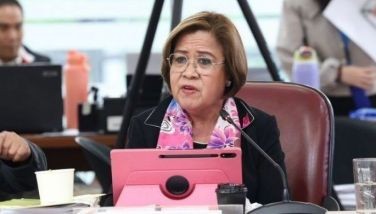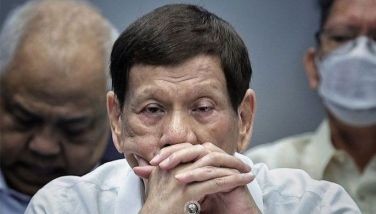Global standards

Since my student days, the idea of changing the school calendar has been kicked around. There were two proposals: to start the academic term in August or to have a trimester.
My reaction has been unchanged. Under the proposal, the school break will fall during the typhoon season. That defeats the purpose of giving students a break from schoolwork and enjoying the summer. Kids and teenagers need to recharge their batteries.
This has to be the same reason why the main school vacation also generally falls in the summer months in the western hemisphere and in countries in the southern hemisphere such as Australia, Brazil and New Zealand where it’s summer during the US winter months, so their academic year starts in January or early February, whether it’s two semesters, trimester or, in the case of South Africa, four terms. The typical academic year is 200 days, regardless of the number of terms.
Now some folks have revived the proposal for a school opening in late August or early September – the same as in the US. This means students will have to remain in school while the beaches and mountain trails beckon in summer, and then try to enjoy their vacation while cooped up at home during torrential monsoons and floods.
We’re told that the change is meant to make our schools at par with regional and global standards. I didn’t know the date of the academic year had something to do with that. We’re also told that it would make life easier for exchange students from other countries. But they have the International School and Brent School, where the academic year starts in August, to accommodate their schedules. The children of many foreign diplomats and other expats study in these schools.
Filipinos who can afford these schools can enjoy their summer vacation in countries where it’s summer during the typhoon season in the Philippines.
I’m not sure what professors think, but those working in the University of the Philippines are reportedly against the change. Maybe the proponents can come up with something persuasive enough to sell the idea. So far I haven’t heard anything that would change my ex-student’s mind.
Even players in the tourism industry should be against it. The summer school vacation is the peak season for travel in this country, and among the biggest domestic tourists are students – often with parents in tow – enjoying the vacation spots. They won’t be going anywhere when Baguio and Banawe are cut off by landslides and flights can be canceled any time during the monsoon season.
* * *
We should just focus more on improving the quality of Philippine education so we can be at par with many in the region.
From grade school to college, Asia has some of the world’s most competitive educational systems and learning institutions. It’s no coincidence that these schools are in the same countries and economies that rank high in annual surveys on national competitiveness. And it’s no coincidence that they are Asia’s most prosperous and technologically advanced economies.
For many decades, Hong Kong, Japan, Singapore, South Korea and Taiwan – Asia’s tigers – invested heavily in public education, producing some of the world’s most competitive (and, as parents admitted, some of the most stressed) students. Malaysia did the same. The results are evident in their level of economic development.
In the past three decades, China has also poured enormous resources into education while at the same time dangling attractive incentives to lure back its best and brightest who have settled overseas. Like their Japanese and South Korean counterparts, Chinese students are under tremendous pressure to excel in academics if they want good jobs.
In their case, education achieves its promise of helping level the playing field for advancement in life. If there are exceptions – “princelings†who can afford to attend exclusive schools in the US and UK – they are rare, although income disparities are widening in China and creating an underclass that communism is supposed to have eliminated.
In our case, income disparities remain exceptionally wide, and our version of princelings – children of the .01 percent of the population – attend the best schools abroad. There’s also a wide gap in the resources and quality of education between the top private schools in Metro Manila and the average public schools, with the exception of the UP system.
For the less privileged, there is no exceptional pressure to compete with the world’s best in academic achievement. They see a huge global market for blue-collar workers and other labor requirements on the lower end of the skills spectrum, and they are happy to answer that demand. These skills require only short courses of no more than two years, meaning lower tuition expenses and faster time to find a job overseas.
Our institutions of higher learning and vocational studies are churning out the workers needed by the world. Education is empowering. A woman I know who started out as a maid in her teenage years was sent by her employer to finish high school and then to obtain a certificate as a nursing aide. She has since found work in the Middle East and then in another country in Southeast Asia and has broadened her worldview plus her finances.
I guess at this point we shouldn’t be complaining that millions of our people can find jobs with decent pay all over the planet.
Now we should also work on raising the quality of Philippine education for the general population. I don’t know if the debate on the school calendar has a place in this effort.
What we must focus on is making quality education accessible to all Pinoys. It shouldn’t be a luxury beyond the reach of the majority of Filipinos. It’s a necessity in a global economy.
- Latest
- Trending





























